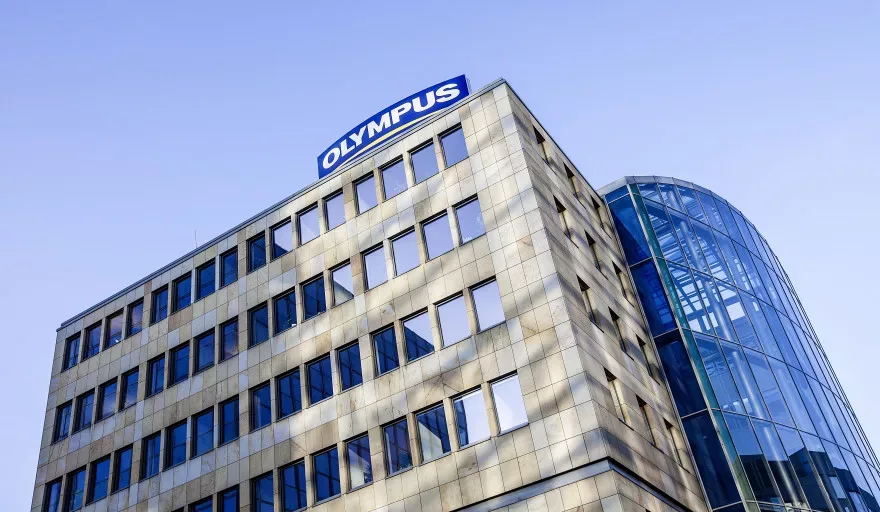Last month a Japanese court handed suspended sentences to three ex-Olympus executives accused of engineering accounting fraud at the camera and medical equipment maker.
Writer Ian Armitage
It’s April 2011. Japanese camera-maker Olympus has appointed its first foreign president, Michael Woodford, a Brit and 30-year company veteran who worked his way up entirely through the ranks of the Nikkei-listed company.
He came with a good pedigree and fantastic past performance – for example, the surgical equipment businesses that he presided over performed spectacularly; about $3.9 billion a year in sales from 2008 to 2010, generating more than $800 million a year in profit.
Six months later though Woodford was sacked. His crime? Questioning the firm’s chairman, Tsuyoshi Kikukawa, about billions worth of what he considered to be suspiciously large payments related to acquisitions.
It blew the lid on one of the biggest financial frauds in Japan’s history and a cover-up of losses dating back to the 1990s.
The dust has largely settled now and earlier this month the executives accused of engineering the massive accounting fraud were handed suspended sentences by a Japanese court.
Mr Kikukawa, former executive vice-president Hisashi Mori and former auditing officer Hideo Yamada were arrested in February last year and later indicted on suspected violation of the Financial Instruments and Exchange Act.
All three had admitted to hiding losses in September last year.
Mr Kikukawa and Mr Yamada were given three-year sentences and Mr Mori a two-and-a-half-year sentence.
Former Olympus presidents Masatoshi Kishimoto and Toshiro Shimoyama were beyond the reach of the court, as the statute of limitations on their actions had long-expired.
The rather light sentences are unlikely to sit well with those who lost significant sums as Olympus’ stock tanked in the wake of the scandal (In the months after the news broke, it wiped almost 80 percent of its share values, dragging the company’s price on the Tokyo Stock Exchange from 2,526 yen to as low as just 420 yen by the time the bottom was reached).
Olympus has also paid some large fines for its role in the fraud.
HIDING LOSSES
So what actually happened? The story began when Olympus bought three tiny, profitless companies that had little to do with its core business and seemed unlikely ever to make a decent return (a cosmetics company, a maker of plastic containers and a waste-disposal business) in 2008 for a reported $800 million. By the end of the financial year, it had written down three-quarters of their value.
It also paid a $687 million “advisory fee” relating to its inflated purchase of British medical-devices firm Gyrus in 2008. The fee was more than 30 percent of the purchase price – closer to one percent is more normal – and it went to a firm in the Cayman Islands and another in New York; both now defunct.
When Mr Woodford learned of it, he sought answers from the firm’s chairman, Tsuyoshi Kikukawa; to no avail.
He was later sacked but in November 2011 Olympus came clean and confessed that the deals were designed to hide losses on securities dating back to the 1990s. In other words, it admitted a fraudulent attempt to cover up previous bad investments by a series of Olympus presidents and the revelation did little to dispel the belief that the core management at Olympus was, an investigation put it “rotten and those around them were contaminated”.
It is still unclear what actually happened to the money and some reports have linked the Olympus funds to Japanese organised crime.
RECOVERY ROAD
Has Olympus since bounced back? Well, not quite, but there have been signs that the firm may be recovering from the scandal.
It has announced a major overhaul, entered into an alliance with electronics giant Sony to try to boost its share of the global medical equipment market, and has returned to profit. Its shares have also recovered most of their losses.
Just a week after guilty verdicts and suspended sentences, Olympus issued a 118 billion yen in a new share issue, with Prime Minister Shinzo Abe’s economic stimulus measures boosting global appetite for Japanese shares.
Last year Olympus raised 50 billion yen through a third-party allocation of shares to business partner Sony.
It will use the bulk of the funds it is raising to bolster its medical business, including 19.7 billion yen to build three medical equipment factories. Two will be located in Fukushima prefecture, the site of the 2011 nuclear disaster, the Reuters news agency said.
But we might not have heard the end of it all. Olympus has pending cases against 19 individuals, together seeking some US$165 million in damages. Kikukawa, Mori, and Yamada are all included among their number, and all three men may yet face a significant consequence for their actions in the case.
Image: © Olympus
Copyright is owned by Asia Outlook and/or Outlook Publishing. All rights reserved.




































